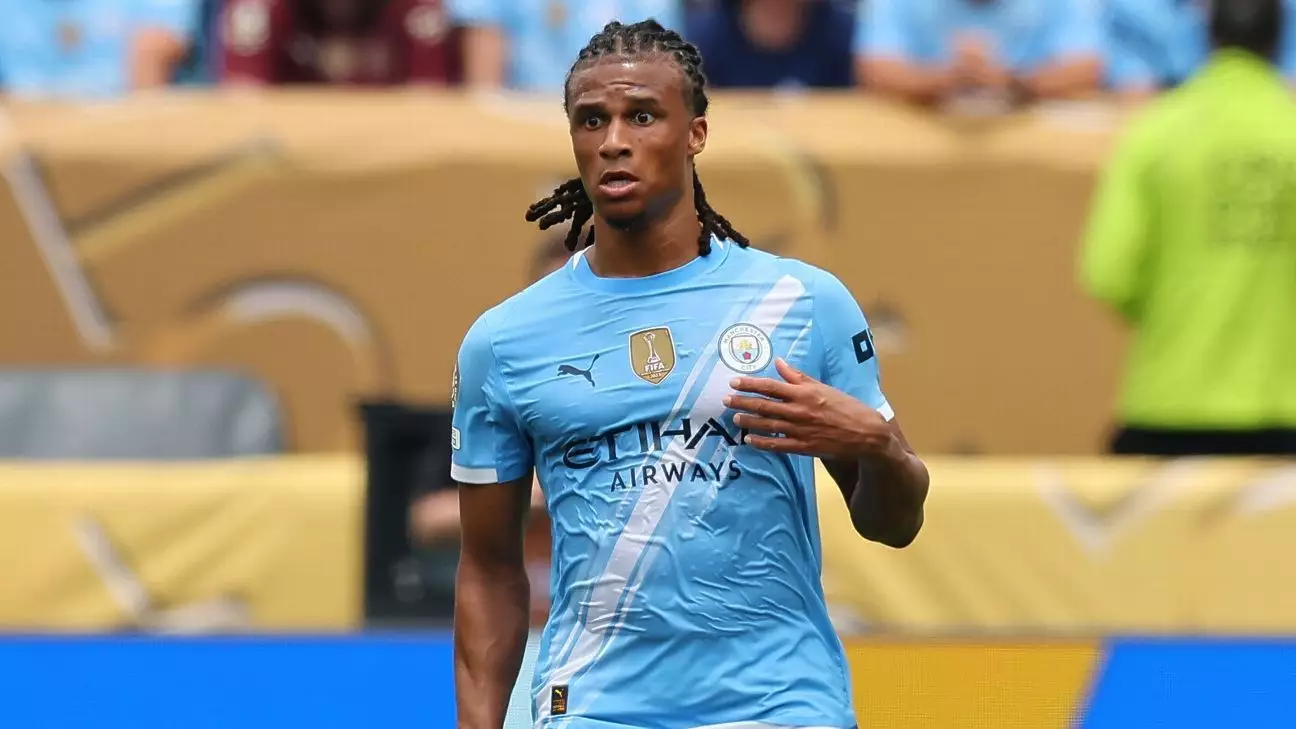In a landscape where change is often celebrated, the recent discussions surrounding pre-game rituals in football have taken an intriguing turn. Nathan Aké, a prominent defender for Manchester City, recently weighed in on the debate about adopting individual player walkouts as seen in the Club World Cup. While some, like Chelsea’s Romeo Lavia, advocate for this initiative, Aké’s firm stance speaks volumes about the value of tradition within the sport. His belief that the Premier League should maintain its conventional routines illustrates a broader sentiment regarding football as a cultural phenomenon that shouldn’t be tampered with too lightly.
The Allure of Individuality vs. the Strength of Community
At first glance, the idea of individual player walkouts appears enticing. It presents an opportunity for players to showcase their personalities and for fans to connect with their heroes on a more personal level. Lavia’s perspective that these moments are “something special” reflects a desire for more individuality in a sport often characterized by uniformity. However, Aké’s cautionary approach serves as a reminder that the collective spirit of team play remains at the heart of football.
By maintaining traditional walkouts, the Premier League upholds a sense of camaraderie that resonates with fans and players alike: a shared journey that culminates in the collective spectacle of a team emerging onto the field as one. This idea transcends individual accolades and championship titles; it encapsulates the ethos of football as a communal experience.
Acknowledging the Weight of Player Experience
Beyond the discussions of pre-game antics lies the very real context of player experience, especially for someone like Aké, who has battled through a turbulent season plagued by injuries. His recent performance in the Club World Cup, where he completed a full 90 minutes, signifies much more than a personal victory; it resonates with a narrative of resilience. Aké’s journey through injury underscores the importance of preparation and community support, whether on or off the pitch.
Moreover, Manchester City’s manager, Pep Guardiola, has laid emphasis on the need for robust players within his ranks, showing that the nuances of teamwork extend beyond mere individual talent. When examining the Premier League’s dynamics, one cannot ignore how adaptations to the game – like individual walkouts – could shift the focus away from team unity to individual fame, something that ultimately could undermine the league’s legendary teamwork ethos.
The Balance of Innovation and Tradition
While innovation is key to evolving sports, jumping on every trend could detract from what makes the Premier League unique. The sport thrives on its longstanding traditions: from the relentless rivalries and legendary stadiums to the collective identity that ties fans to their clubs. Thus, while the allure of modernizing certain aspects of the game is tempting, Aké highlights the importance of preserving the foundational pillars that have defined English football for decades.
As debates around player walkouts continue to simmer, there remains a crucial question at the heart of this discourse: how do we balance individuality with the essence of team spirit? Ultimately, while embracing new traditions can enhance the spectator experience, the Premier League should tread carefully to ensure that it honors the community-centric narrative that has made it the world’s most revered football league.

